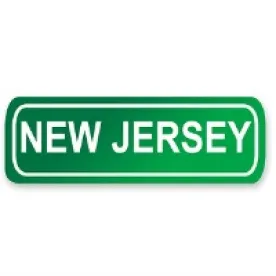On August 22, 2016, the New Jersey Supreme Court held in In re Reglan Litigation, Docket No. A-56-14 (N.J. Supreme Ct. Aug. 22, 2016), that federal law does not pre-empt state law claims alleging that a generic drug manufacturer failed to timely update the warnings for its product to match those of the brand-name counterpart. An analysis of the Court’s decision first requires a review of the United States Supreme Court’s decision in PLIVA, Inc. v. Mensing, 564 U.S. 604 (2011).
In Mensing, the United States Supreme Court held that state law failure to warn claims against generic drug manufacturers were pre-empted by federal law because the Food Drug and Cosmetic Act (“FDCA”) and FDA regulations preclude generic manufacturers from including additional or stronger warnings on their products without prior FDA approval. The Court’s decision was premised on the holding that the FDCA and FDA regulations impose a “duty of sameness” on generic manufacturers which requires that the warnings for their products match the warnings for the corresponding brand-name product. The Court held that state law claims alleging that a generic drug manufacturer should have included additional or different warnings than those included in the labeling for the brand-name product conflicted with the general drug manufacturer’s federal duty of sameness. Since Mensing, many courts have dismissed state law failure to warn claims alleging that the generic drug manufacturer should have included additional or stronger warnings than those included in the labeling for the brand-name
drug. However, one question left open after Mensing was whether federal law pre- empted claims alleging that the generic drug manufacturer failed to timely update the warnings on its product to match changes made to the warnings for the brand-name product.
In re Reglan involved the same generic pharmaceutical product, metoclopramide (brand name, Reglan), that was at issue in Mensing. Metoclopramide is indicated
for the treatment of heartburn and gastroesophageal reflux. Plaintiffs claim that the long-term use of metoclopramide is associated with tardive dyskinesia, a permanent and often untreatable neurological condition. In 2004, the brand-name manufacturer received FDA approval to add a warning advising that the use of metoclopramide should not exceed twelve weeks. In 2009, the FDA required metoclopramide to carry a black-box warning regarding the risk of tardive dyskinesia associated with use of the product beyond twelve weeks.
In November 2010, numerous plaintiffs filed a Master Complaint in New Jersey state court against the brand-name manufacturer of Reglan and the generic manufacturers of metoclopramide, alleging that they suffered personal injuries as a result of using the products. Plaintiffs claimed that the generic manufacturers failed to timely update the warnings labels on their metoclopramide products to include changes made to Reglan’s warnings in 2004 regarding the long-term use of the product. The generic manufacturers moved to dismiss plaintiffs’ claims arguing that they were pre-empted by federal law.
On May 4, 2012, the trial court granted the generic manufacturers’ motion in part and denied it in part. The trial court held that plaintiffs’ claims, to the extent that they were based on the adequacy of the generic manufacturers’ warnings, were pre-empted under Mensing. On the other hand, the trial court held that plaintiffs’ claims alleging that the generic manufacturers failed to timely update their warnings to match Reglan’s 2004 warnings were not pre-empted under Mensing because the claims did not conflict with the federal duty of sameness. The trial court granted plaintiffs discovery on the issue of the timeliness of the generic manufacturers’ label changes. Discovery revealed that the four generic manufacturers updated their label to conform to Reglan’s 2004 label between six months and 4 1⁄2 years after the Reglan label change was implemented. At the conclusion of discovery, the generic manufacturers moved for summary judgment. The trial court denied the motion holding that plaintiffs’ failure to timely update claims were not pre-empted by federal law, and that whether the generic manufacturers timely updated their warnings was an issue of fact for the jury to decide.
The generic manufacturers appealed the summary judgment decision to the New Jersey Appellate Division.
On November 12, 2014, the Appellate Division affirmed the trial court’s decision. The court held that plaintiffs’ claims that the generic manufacturers failed to timely update their warnings were not foreclosed by Mensing because there was no conflict with federal law. The court further rejected the defendants’ arguments that plaintiffs’ claims were pre-empted under Buckman v. Co. v. Plaintiffs’ Legal Committee, 531 U.S. 341 (2001), which bars the private enforcement of the FDCA and FDA regulations. The court held that plaintiffs’ claims were failure to warn claims authorized by the New Jersey Product Liability Act (“PLA”) and therefore, were grounded in state law rather than federal law. The generic manufacturers sought leave to appeal the decision to the New Jersey Supreme Court which the Court granted on April 24, 2015.
In its appeal to the New Jersey Supreme Court, the generic manufacturers argued that plaintiffs’ failure to timely update claims were not cognizable because they sought to enforce the duty of sameness, a federal requirement, rather than any state law. The defendants’ arguments were based on Buckman and the New Jersey Supreme Court’s decision in Cornett v. Johnson & Johnson, 211 N.J. 362, 385 (2012) in which the Court held that:
[A] traditional state law cause of action is one that provides the required elements of a state cause of action with no reference to federal requirements as the measure of the reasonableness or wrongfulness of the manufacturer’s conduct. Thus, regardless of how a plaintiff styles a state claim, if the claim depends on the alleged violation of a federal requirement, it is functionally equivalent to a claim grounded solely on the federal violation, and is impliedly preempted.
The defendants argued that under the PLA, failure to warn claims are determined by the adequacy of the warning that the manufacturer provided, and that plaintiffs’ failure to timely update claims were not based on the adequacy of the generic manufacturers’ warnings. Because plaintiffs’ failure to timely update claims were entirely premised
on the federal duty of sameness, rather than the state law duty of adequacy, the defendants argued that those claims were impliedly pre-empted by federal law. In response, plaintiffs argued that their claims were grounded in traditional state law principles because they were asserting failure to warn claims under New Jersey’s PLA which paralleled, rather than relied on, federal requirements.
In a unanimous decision, the New Jersey Supreme Court affirmed both lower courts’ decisions holding that plaintiffs’ failure to timely update claims were not pre-empted by federal law. The Court first addressed Mensing, holding that plaintiffs’ claims were not pre-empted because there was no conflict between plaintiffs’ claims that state law required the generic manufacturers to include adequate warnings with their products and federal law which imposed a “duty of sameness” on generic manufacturers.
The Court explained that the generic manufacturers not only could have updated their warnings to comply with state tort law, but were also required to do so under the FDCA. However, the Court explained that Mensing pre-empted any failure to warn claim alleging that the generic manufacturer should have included additional or different warnings beyond those that were included in the brand-name product’s labeling.
Next, the Court analyzed whether any other federal pre-emption principles precluded plaintiffs’ claims. Relying on Wyeth v. Levine, 555 U.S. 555 (2009), the Court explained that drug manufacturers bear ultimate responsibility for the warnings on their products, and that state law product liability suits can serve as a complementary form of drug regulation. The Court further noted that Wyeth held that Congress, in passing the FDCA, did not intend to pre-empt state law tort claims. The Court also explained that ensuring that prescription drug products bear adequate warnings is an area that state tort law, like New Jersey’s PLA, traditionally polices. Under these pre-emption principles set forth in Wyeth, the Court held that plaintiffs’ failure to timely update claims were not pre-empted by federal law because they promote rather than stand as an obstacle to the FDCA’s duty of sameness.
The Court then addressed the defendants’ arguments that plaintiffs’ claims were pre- empted under Buckman and Cornett because plaintiffs were premised on alleged violations of the FDCA. The Court rejected this argument holding that plaintiffs’ claims paralleled, but were not dependent on, federal law. The Court explained that the critical element of plaintiffs’ claims were not that the generic manufacturers violated the FDCA’s duty of sameness, but that they failed to provide adequate warnings under the PLA. Because plaintiffs’ claims existed under state law independent of the FDCA’s requirements, the Court held that the pre-emption principles set forth in Buckman and Cornett did not apply.
Finally, the Court explained what a failure to timely update claim might look like under New Jersey law. The Court acknowledged that “[s]ome lag time is inevitable” before a generic manufacturer can learn that the warnings for the brand-name drug have been changed and include those new warnings on its own product labeling. As a result, the Court explained that a failure to timely update claim will be pre-empted by federal law if a generic drug manufacturer exercised reasonable diligence to learn about changes to the brand-name drug’s warnings, and updated its warnings “at the very earliest time possible,” a statement that the Court adopted from a 2000 FDA guidance document. The Court also held that determining whether a failure to timely update claim is pre-empted, because the manufacturer acted in a timely manner, is a question of law for the court and not the jury to decide. The Court also cautioned that its review addressed a narrow legal issue, and that questions regarding whether a particular manufacturer’s warning was inadequate, or whether the lack of updated warnings was the proximate cause of a plaintiff’s injuries, would still need to be decided by the trial court and/or jury.
What Does This Case Mean?
While the New Jersey Supreme Court’s decision is disappointing for generic drug manufacturers, the result is not completely unexpected. The Court’s decision is consistent with the trial and appellate courts’ interpretations of the PLA, and is in line with the majority of federal and other state court decisions around the country which have held that failure to timely update claims are not pre-empted by federal law.
The Court’s ruling does place a heavy burden on generic manufacturers to monitor brand-name labeling updates, and to implement them “at the very earliest time possible.” Here, the generic manufacturers took between six months and 4 1⁄2 years
to implement the 2004 label change. Although the Court did not identify what “very earliest time possible” means for generic drug companies to update their labeling,
the Court did hold that whether a manufacturer complied with this requirement is a question of law for the court, not the jury, to decide. This ruling may enable generic drug manufacturers to obtain dismissals on summary judgment if the manufacturer can fit within the “very earliest time possible” window.
The Court also made clear that it was deciding a very narrow legal issue, i.e., whether failure to timely update claims were foreclosed as a whole by federal law. The Court pointed out that it was not passing judgment on whether plaintiffs can meet their burden of proving that a generic drug manufacturer’s failure to timely update its product labeling rendered the existing warnings inadequate, or was the proximate cause of plaintiffs’ injuries. Those types of case-specific issues will still need to be addressed by trial courts and may ultimately result in favorable rulings for generic drug manufacturers. See Fulgenzi v. PLIVA, Inc., 140 F. Supp. 3d 637 (N.D. Ohio Oct. 23, 2015) (dismissing plaintiff’s failure to timely update claim on proximate cause grounds because plaintiff’s prescriber testified that he never reviewed or relied on the generic drug manufacturer’s labeling).
Finally, the Court did not address the conflict that may exist in a trial where both the brand-name manufacturer and generic manufacturers are named as defendants. In such cases, plaintiffs may simultaneously assert that the generic drug manufacturer should be held liable under the PLA for failing to timely update it warnings to match changes made to the brand-name drug’s warnings, and also allege that the brand- name manufacturer’s updated warnings were also inadequate. The Court did not address whether generic drug manufacturers may be held liable under the PLA for failing to implement updated warnings that plaintiff contends were otherwise inadequate, or whether such conflicting claims may lead to jury confusion and inconsistent verdicts.
We will continue to keep you apprised of further developments in this area.





 />i
/>i

